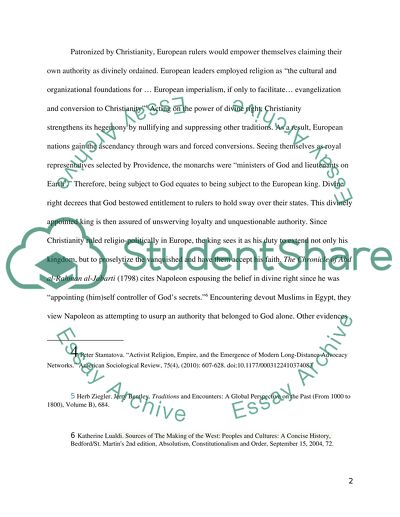Cite this document
(“European Expansionism and the Influences of Religion, Military and Research Paper”, n.d.)
Retrieved from https://studentshare.org/history/1442528-history
Retrieved from https://studentshare.org/history/1442528-history
(European Expansionism and the Influences of Religion, Military and Research Paper)
https://studentshare.org/history/1442528-history.
https://studentshare.org/history/1442528-history.
“European Expansionism and the Influences of Religion, Military and Research Paper”, n.d. https://studentshare.org/history/1442528-history.


